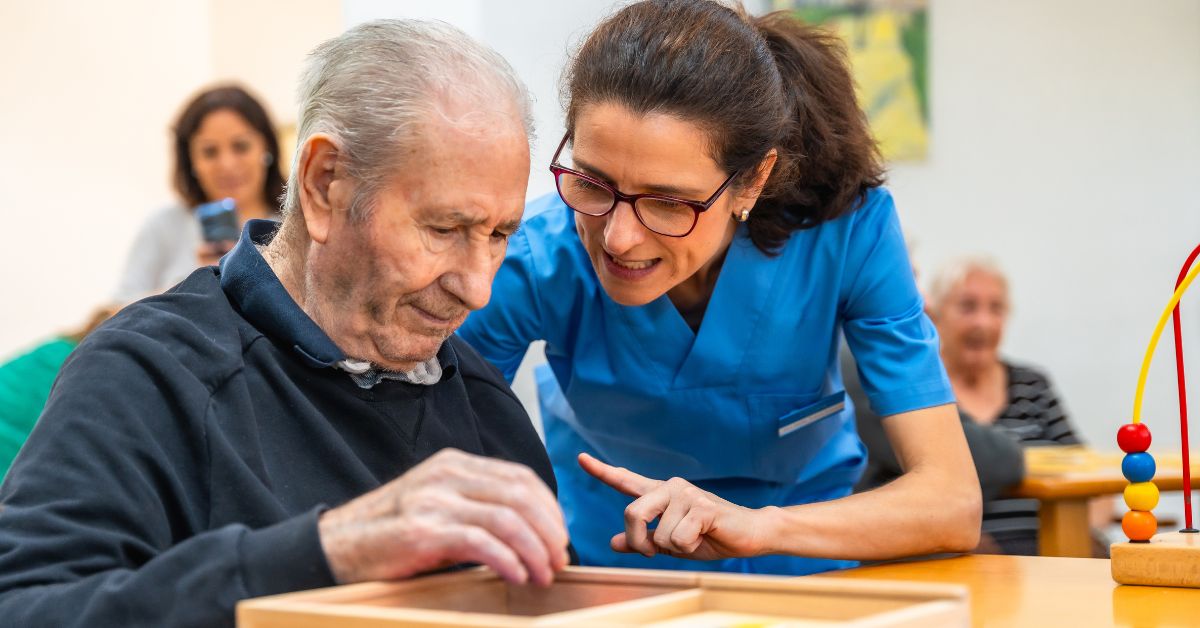Monday to Saturday - 8:00 -17:30
Incredible Benefits of Memory Care: What You Should Know

The task of caring for a loved one with memory impairment can feel overwhelming. You might wonder if memory care in Richmond, MI could be a better solution. This decision isn’t easy, but knowing the benefits can help bring clarity during tough times.
Specialized Memory Care That Adapts to Each Stage
Every person’s experience with memory loss unfolds differently. What works beautifully for someone in the early stages might feel overwhelming or insufficient for someone further along their journey.
Specialized memory care recognizes this reality, understanding that dementia moves through distinct phases, each requiring a thoughtful approach to support and meaningful engagement.
Here’s something that surprised many families: dementia never stays the same. Each month, each week can bring subtle shifts that change what your loved one needs most. Early-stage residents maintain their independence while receiving gentle support when required. Those experiencing moderate cognitive decline benefit from increased structure and assistance with daily routines. Eventually, when round-the-clock care becomes necessary, the focus turns toward comfort, dignity and preserving connection.
Key Benefits of Memory Care
Deciding on memory care can feel overwhelming. You want what’s best for your loved one, yet the choice brings a mix of emotions—guilt, uncertainty, hope and worry—all tangled together. Understanding what memory care offers can help ease some of that emotional weight.
These benefits reach far beyond basic assistance.
1. Trained staff who genuinely understand memory loss
Memory care communities are staffed by professionals who specialize in memory disorders. Their training goes far beyond standard care, focusing on how conditions like Alzheimer’s and dementia impact daily life, relationships and emotions.
These caregivers’ ability to see the person, not just the disease, makes them exceptional. They understand that when a loved one repeats a story, it’s often a search for connection, not a sign of resistance. They can recognize common behaviors like evening agitation and use specialized techniques to help your loved one feel calm. This expertise fosters an environment of respect and dignity, ensuring your loved one is genuinely cared for, not just managed.
2. Daily routines that bring comfort
Memory disorders often impair people’s ability to predict what will happen next, leaving them feeling anxious and lost. Memory care communities address this by creating gentle, consistent rhythms daily.
Regular meal times, familiar activities and predictable bedtime routines become security anchors. Your loved one begins to relax into these patterns, knowing breakfast happens simultaneously, that afternoon activities are enjoyable and that bedtime brings comfort rather than confusion.

3. Activities that honor who they still are
Quality memory care celebrates what remains rather than focusing on what’s been lost. Activities are carefully matched to each person’s current abilities—not too challenging to cause frustration, not so simple as to feel patronizing.
These programs concentrate on:
- Building on existing strengths and interests
- Creating moments of joy and accomplishment
- Fostering a sense of purpose and dignity
4. Friendships that fight loneliness
Loneliness accelerates memory decline, yet meaningful social connections can slow this process. Memory care brings together people facing similar journeys, creating understanding that’s hard to find elsewhere.
Group activities encourage natural interactions, whether someone participates fully or simply enjoys being part of the group.
How Memory Care Improves Life for Families
The ripple effects of memory care extend far beyond the resident. Families discover relief they didn’t know was possible when the weight of 24/7 caregiving finally lifts from their shoulders.
From caregiver to loved one: role restoration
Something beautiful happens when you can stop being the caregiver and return to being the daughter, son or spouse you once were. The gradual shift from loving family member to exhausted caregiver happens so slowly that many families don’t realize how much they’ve lost until it’s gone.
Adult children manage medications, handle personal care and make countless daily decisions for parents who once cared for them. Spouses watch their partnerships transform into patient-caregiver relationships that drain the joy from their remaining time together. This role reversal often leads to caregiver burnout, which can seriously affect physical health and emotional well-being.
Finding the Right Care, Together
Few decisions feel as heavy as determining the proper care for someone you love who’s struggling with memory loss. The weight of that choice settles differently on every family and there’s no shame in feeling overwhelmed by the options.
This journey with memory loss will challenge you in ways you never expected. But you don’t have to walk it alone and you don’t have to carry every burden yourself.
Sometimes, the most loving thing we can do is recognize when specialized help will serve our family better than struggling through on our own.
Your next step might be a conversation with your family, a visit to see what memory care looks like or simply sitting with these ideas for a while longer. Trust yourself to know what feels right for your situation. Call Aion Care at (586) 473-8289 when you’re ready to explore what memory care could mean for your family.
FAQs
Q1. How does memory care benefit family members?
Memory care allows family members to transition from exhausted caregivers to their original roles as loved ones. It relieves the overwhelming responsibilities of daily care, reduces stress and allows for more meaningful interactions during visits.
Q2. What kind of training do staff members in memory care communities receive?
Staff in memory care communities receive specialized training in Alzheimer’s and dementia care. They learn to effectively communicate with residents, respond to behavioral changes and adapt their care strategies as the condition progresses.
Q3. How does memory care address the social needs of residents?
Memory care communities create opportunities for meaningful social connections among residents facing similar challenges. They offer structured group activities that encourage interaction regardless of cognitive ability, helping to combat isolation and enhance emotional well-being.



